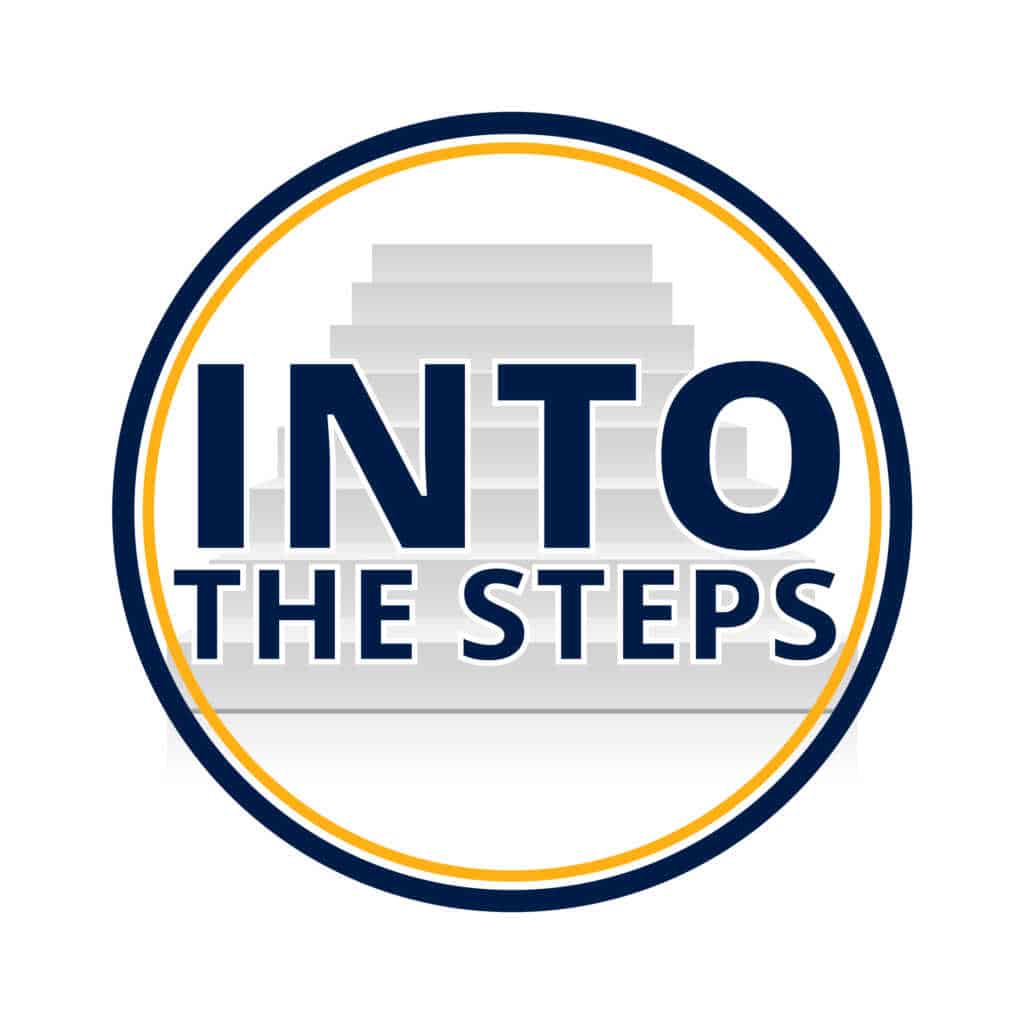Fourth Step
Fourth Step Summarized
The Fourth Step is to make “a searching and fearless moral inventory of ourselves.” Another word for “moral” is truth. By reviewing our lives — the people, situations, beliefs and fears we have engaged with in our past — we can begin to see the truth about ourselves and the role we’ve played in our troubles. Through writing, we begin to see the patterns we have repeated over and over again, the negative beliefs that have perpetuated those patterns, the harms we have caused and the instincts that have driven us. We begin to see ourselves and our lives clearly.
Into the Steps
Into the Steps is a series of articles that dives deep into each of the 12 Steps. While Guardian Recovery is not affiliated with Alcoholics Anonymous, we have been utilizing the 12-Step process in a treatment setting for more than 15 years. We have found that the steps, especially in combination with our clinical therapy offerings, are a powerful tool for helping individuals transform their lives and find lasting freedom from addiction.
It is highly encouraged that you do not attempt to take these steps alone, but rather with a trusted guide called a sponsor who can walk you through them and be your support. Or, you can come work them at a Guardian Recovery treatment program. Unlike many other treatment centers, we don’t just teach individuals about the steps, we actively work them. Find a facility here.
Steps Recap
Steps 1-3
In our First Step, we admit to ourselves on a deep, heartfelt level, that left to our own devices, we have no power to overcome our addiction. We learn that we are powerless because our mind will always convince us it’s ok to take the first drink or drug, and our body will always demand we keep drinking or using once we start. This double-edged sword — the tricky mind and allergic body — dooms us to repeat our active addiction over and over again unless we can find a power to help us fix the condition.
In Step Two, we came to believe that there must be some sort of power that helps seemingly hopeless addicts and alcoholics achieve sobriety because the evidence is all around us — countless individuals that have found lasting recovery through the 12-Step program. Whether we define that helpful power as the energy inherent in the collective community of Alcoholics Anonymous, or in a spiritual force of one’s own understanding — each of us come to believe in our ability to change. We find hope.
In Step Three, we discover that, for most of our lives, we have lived by self-propulsion. We have tried to direct our own lives. Unfortunately that didn’t work out very well for us. In Step Three, we decide to give up control to the Higher Power we discovered in Step Two. We turn our will — our thoughts and actions — over to the care of that Higher Power, letting it dictate our path. This also means we decide to utilize the map that has already been laid at our feet — the 12-Steps. We launch quickly into our Fourth Step.
Step Four Explained
Step Four, which begins on the very end of page 63 in the Big Book of Alcoholics Anonymous, states that after we take Step Three, we must “launch out on a vigorous course of action, the first step of which is a personal housecleaning.”
It says that, while turning our will over to our Higher Power in Step Three was a “vital and crucial step,” it can have “little permanent effect unless at once followed by a strenuous effort to face, and be rid of, the things in ourselves that have been blocking us.”
What does this mean? A personal housecleaning? A moral inventory? What is that?
Like a business that takes an inventory of what products they have in stock, we take an inventory of our lives. What things are we holding on to that no longer profit us? What items have turned rotten and are making us sick? What items are downright ugly? What assets do we have that we want to keep? What behaviors do we keep repeating that are keeping us stuck? These are the types of things we will look for throughout this Fourth Step process.
Another word for “moral” is truth. By reviewing our past — the people, situations, beliefs and fears we have engaged with throughout our lives — we can begin to see the truth about ourselves and the role we’ve played in our troubles. Through writing, we begin to see ourselves and our lives clearly.
Resentments Inventory
The Fourth Step process begins with an inventory of our resentments. First, we get out some sheets of paper and we draw four columns. In the first column, leaving ample space between each name, we write down the people in our lives who we are resentful at. This means we write down anyone (or anything — such as institutions) we are angry at, or that we feel hurt by. A good way to tell who we should write down in our resentments list is to gauge how we feel when we think of this person or situation. If, when we think about it, we have a negative emotional reaction of any kind — anger, sadness, disgust, shame, guilt, rage — we should write down their name. The next step is to write down, in the second column, exactly what that person did. You need not write the entire story. You remember what happened or you wouldn’t be writing it down. And, chances are it is a story you have played on mental repeat many, many times. So no overwriting. Merely jot down a bulleted list of what that particular person did to make you feel angry or hurt. Once you have written down what this person did, you will move on to the third column. You will write down how their actions affected you. The Big Book describes specifically what effects to look for:Did it affect your:
- Self-Esteem
- Personal Relationships
- Material Security
- Emotional Security
- Sexual Relations
- Social Ambitions
- Material Ambitions
- Sexual Ambitions
- What did we do prior to the event in question that may have led up to it?
- What did we do during that event?
- What did we do after?
- How did we use that event to our advantage in the time following?
- How were we selfish, self-seeking or afraid?
- Were we dishonest?
Fear Inventory
The next part of the Fourth Step Process is to take a look at your fears. Look back over the fourth column of your resentment inventory. In each instance, notice when you were acting out of fear? Reflect. Then write down a list of all your fears. These fears could include things such as: “Fear people will always leave me.” “Fear that I am not smart enough, pretty enough or worthy enough.” “Fear that I will be alone.” “Fear that I am not being appreciated.” Etc. etc.Sex Inventory
Next we take a look at our sexual relationships. We write down the people we have had sexual relationships with. We then ask ourselves the following questions:- Were we selfish
- Were we dishonest?
- Were we inconsiderate?
- Did we hurt anyone?
- Did we unjustifiably house jealousy, suspicion or bitterness?
- Where were we at fault?
- What could we have done instead?
Harms Inventory
The last part of the inventory process is to write down the names of all people we have harmed in our lives. If we have been honest and thorough in the other parts of our inventory, it will be rather clear to us who we have harmed in our lives. We write down what we did, and how we harmed the people on the list.Into the Steps
Useful Fourth Step Tools
There are many online resources to help you with your Fourth Step. Here are a few:
- Printable Fourth Step worksheets
- Fourth Step in the Big Book (Chapter Five. The Fourth Step begins on the very bottom of page 63).
- Fourth Step in the Twelve & Twelve
- A video Big Book study of the Fourth Step
Tips For Finishing Your Fourth Step
- Don’t overwrite. Use bullet points.
- Talk with your recovery friends and sponsor regularly, especially as difficult emotions come up
- Do not attempt to do a fourth step without a sponsor
- Pray and meditate before and after writing
- Take good care of yourself — Remember H.A.L.T — avoid getting hungry, angry, lonely or tired.
Guardian Recovery & the Fourth Step
The Fourth Step can be an emotionally triggering experience; and it often takes discipline and accountability to finish it. If you think you or a loved one would benefit from working the Fourth Step in a structured, supportive and caring environment, then working the Steps in a treatment setting might be valuable. While in residential inpatient, partial hospitalization or intensive outpatient treatment, individuals actively work the 12-Steps with a 12-Step Contact (a professional sponsor on staff). They simultaneously work with a primary therapist to process difficult emotions as they come up. To look for one of Guardian Recovery’s 12-Step treatment centers, click here. Or, contact us 24/7. Our compassionate team of Treatment Advisors is ready to help you. We do recover. Start today!
Get Started Now
Give us a call 24/7


